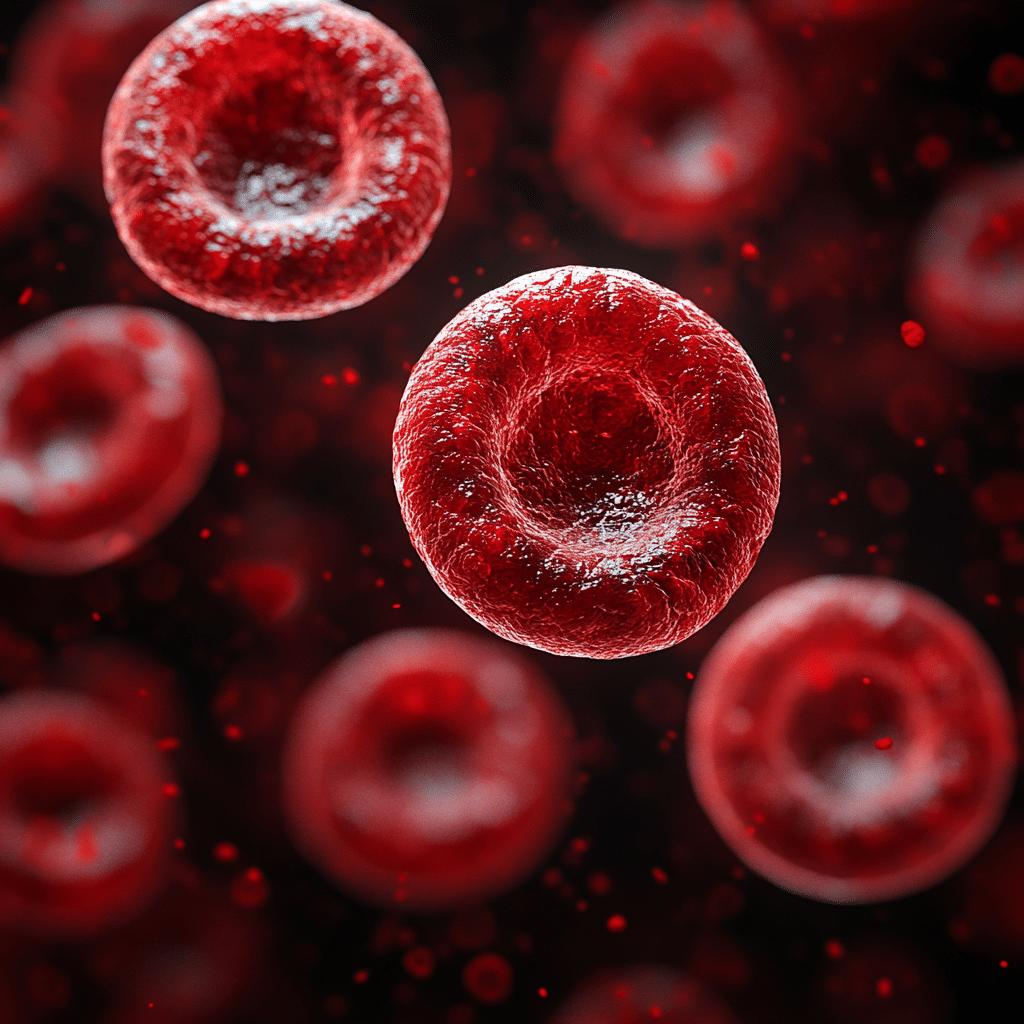Let’s face it—seeing vomiting blood can be downright terrifying. This medical phenomenon, known as hematemesis, can happen to anyone, and knowing what to do when it occurs is crucial. Whether it’s a breathtaking session at the gym that left you feeling uneasy or a fancy dinner with that spicy dish that sent your stomach into overdrive, understanding the causes and symptoms of vomiting blood can make a world of difference when it comes to your health. So grab a seat, and let’s dive into this important topic like it’s the last rep of your workout!

Top 7 Causes of Vomiting Blood and Associated Symptoms

1. Peptic Ulcers
Peptic ulcers, which include gastric and duodenal ulcers, can lead to serious gastrointestinal bleeding. An ulcer can crop up for various reasons, but common culprits are excessive use of NSAIDs or even stress. You might feel a sharp pain in your stomach or experience nausea after eating—especially after a spicy meal! Treatment can involve proton pump inhibitors, like Omeprazole, along with lifestyle changes to keep those nasty symptoms at bay.
2. Esophageal Varices
Imagine swollen veins in the esophagus almost like balloons ready to pop. Esophageal varices often occur in folks with liver cirrhosis and can be quite dangerous. Symptoms may include vomiting blood, along with abdominal swelling and yellowing of the skin. The treatment usually involves endoscopic procedures to prevent potential ruptures and medications such as beta-blockers that keep the blood pressure in check.
3. Gastritis
When inflammation hits the stomach lining, gastritis steps in. Often fueled by heavy drinking, prolonged NSAID use, or stress, this condition can turn into a nasty situation involving vomiting blood. You might feel bloated or find yourself nauseous after eating—a clear sign that it’s time to ditch your favorite cocktails and embrace a healthier lifestyle. For relief, antacids might help, along with steering clear of those irritant foods.
4. Malignancies
Not fun but important: gastrointestinal cancers, like stomach and esophageal cancer, can reel in symptoms like vomiting blood. If you’re dealing with consistent nausea after eating and experiencing unexplained weight loss, pay attention! Early intervention with oncological therapies is crucial for a better shot at recovery, so don’t wait to schedule that appointment with your doctor.
5. Food-Related Barriers
Some foods can be the villain in our gastrointestinal story. Spicy or overly seasoned dishes can lead to vomiting blood due to irritation in sensitive individuals. Keeping a food journal can be incredibly helpful to identify those pesky culprits that lead to nausea after eating.
6. Infections
Some infections, especially ones caused by Helicobacter pylori, could land you in a bad spot resulting in vomiting blood. These infections can trigger nausea like it’s a competition! Treatment generally consists of antibiotics and medications to ease symptoms while tackling the root cause.
7. Trauma or Injury
A physical injury to the abdomen is no joke. If you’ve been through a rough ride or some intense sport, trauma could lead to vomiting blood. Trust me on this one: if you experience trauma followed by hematemesis, it’s critical to seek immediate medical assistance. Don’t mess around with your health; getting checked out could save your life.
Recognizing Symptoms: More Than Just Blood
While vomiting blood stands out as a significant red flag, there are other symptoms you ought to watch for. Symptoms like nausea after eating and bloating can signal an underlying issue or compound the problem. Additionally, if you notice dizziness, confusion, or chronic pain, don’t take those signs lightly. These could indicate serious complications demanding swift medical attention.
To effectively monitor your health, keep an eye on not just the blood but the symptoms that accompany it. Your body often speaks, so listen carefully, and you’ll be on the path to better health in no time.

What You Should Do Next
Let’s get real: if you find yourself vomiting blood, it’s time to take action. Start by assessing any additional symptoms you might be experiencing. Severe pain, dizziness, or black stools? Don’t hesitate; get medical help ASAP.
For those with milder symptoms, you can take steps to aid your recovery:
Living in fear of gastrointestinal bleeding can be stressful, but knowing the signs of vomiting blood and what it means is essential in safeguarding your health. Knowledge is power! Proactive management and open communication with healthcare professionals can inspiredly guide you through the waves of health concerns, making you feel more secure and focused on crushing those fitness goals.
In closing, remember: stay informed, listen to your body’s signals, and make the right choices. Take charge of your health, and you’ll be well on your way to being shredded and feeling fantastic. When you focus on wellness as part of an active lifestyle, you not only look great but feel amazing. As Arnold would say, “Keep pushing, and don’t let anything hold you back!”
Vomiting Blood: Uncovering the Facts
What You Should Know
Experiencing vomiting blood can be quite alarming, and understandably so. Blood in vomit can stem from various causes, ranging from mild to serious conditions. For example, conditions like gastritis or ulcers can lead to the irritation of stomach lining, while more severe causes might involve liver disease or cancer. Did you know that the human stomach produces about 1.5 liters of gastric juices each day? That’s enough to fill a sizable water bottle! If you’re ever caught in the middle of an intense series like Criminal Minds Season 17, it’s best to shift your focus if you find yourself feeling unwell; your health should always come first.
Symptoms to Watch For
The symptoms accompanying vomiting blood can vary, but they can include abdominal pain, dizziness, or fatigue. Knowing these signs is crucial, especially since they may signal something more serious. Interestingly, certain insects, like the horsefly, can also instigate reactions in the body that may appear alarming and even induce minor bleeding, but that’s usually harmless compared to vomiting blood. Always trust your gut and consult a healthcare professional if you feel something’s off.
What to Do Next
If you or someone else is vomiting blood, it’s vital to act fast. Do not ignore the situation! In extreme cases, immediate medical assistance may be required. Just like checking on your beloved Maltese when they’re acting unusual is important for their health, understanding the implications of vomiting blood is essential. Sometimes it’s hard to gauge when things get tricky, just like figuring out When Does The third trimester start can be for expecting parents. In such situations, act decisively, get a consultation, and ensure you’re covered. After all, prevention is far better than cure!


























